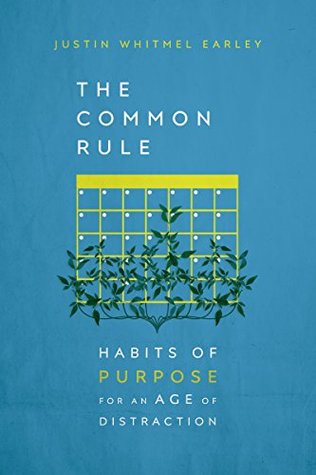More on this book
Community
Kindle Notes & Highlights
Read between
November 26, 2021 - October 29, 2022
I didn’t think these habits would matter much because I had no idea how much my ordinary habits were shaping my soul in the most extraordinary ways. I had no idea how much my life was being formed by my habits instead of my hopes. Most of us don’t, of course, because habits are the water we swim in.
Second, because our unconscious choices form us just as much, if not more than, our conscious ones, we can become formed in patterns that we would never consciously choose if we were aware of them. This is the difference between what we call education and formation. Education is what you learn and know—things you are taught. Formation is what you practice and do—things that are caught. The most important things in life, of course, are caught, not taught, and formation is largely about all the unseen habits.
to fully understand habits you must think of habits as liturgies.
My life was an ode of worship to omniscience, omnipresence, and limitlessness. No wonder my body rebelled.
We, for our own sake, tried to become limitless, and the world was ruined. Jesus, for our sake, became limited and the world was saved.
Only when your habits are constructed to match your worldview do you become someone who doesn’t just know about God and neighbor but someone who actually loves God and neighbor.
We have a common problem. By ignoring the ways habits shape us, we’ve assimilated to a hidden rule of life: the American rule of life. This rigorous program of habits forms us in all the anxiety, depression, consumerism, injustice, and vanity that are so typical in the contemporary American life.
The fact that we’re made to eat says volumes about who we are and who God is. We are not just hungry bodies, nor machines that simply need fuel. We are hungry souls; we are people who crave the company and the delights of the table. Our need for food says something profound about us. It says we need God, we need others, and we need the created world. The need to eat reveals our dependence on God. Perhaps one of the most significant differences between us as image bearers of God and God himself is that we, unlike him, are dependent on things outside our selves. Food is our daily reminder of
...more
But like all work on formational habits, the background norms are far more powerful than the exceptions. The pattern, not the anomaly, is the key.
Opening the household table on a regular basis creates an undercurrent of the Christian life that mimics the adoption ethic. The family is open, not closed. And there are few more precious gifts to give someone who is lonely than inviting them into the circle.
If secularism is not a conclusion but a mood, we cannot disrupt it with an argument. We must disrupt it with a presence.
One of the reasons I’m so compelled by the life of habit is that I see habits as a way of light in an age of darkness. Cultivating a life of transcendent habits means that our ordinary ways of living should stand out in our culture, dancing like candles on a dark mantle.


